Why a nomadic family homestay in Mongolia is the ultimate camping experience
Getting off grid doesn’t get more extreme than this
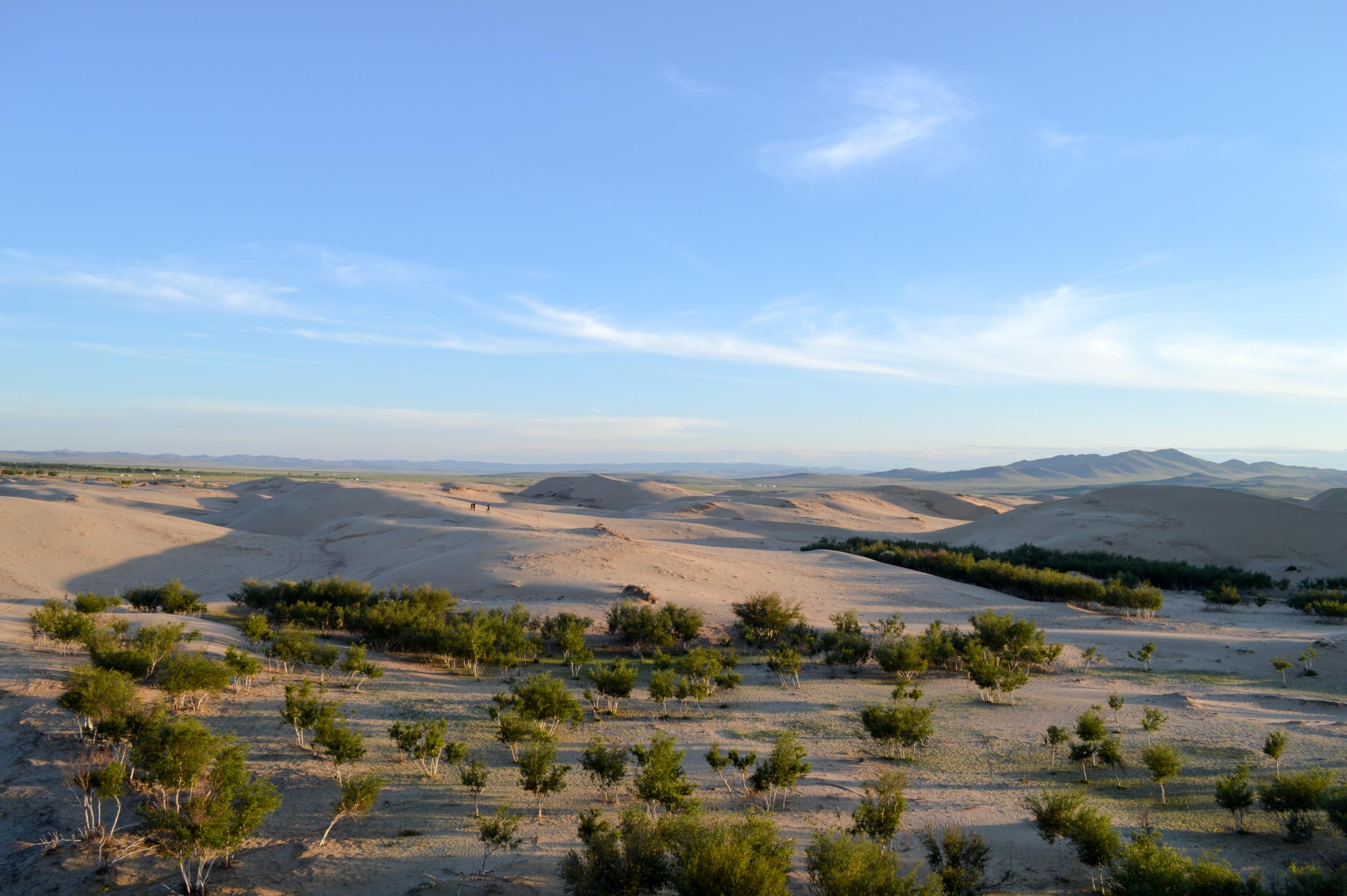
Your support helps us to tell the story
From reproductive rights to climate change to Big Tech, The Independent is on the ground when the story is developing. Whether it's investigating the financials of Elon Musk's pro-Trump PAC or producing our latest documentary, 'The A Word', which shines a light on the American women fighting for reproductive rights, we know how important it is to parse out the facts from the messaging.
At such a critical moment in US history, we need reporters on the ground. Your donation allows us to keep sending journalists to speak to both sides of the story.
The Independent is trusted by Americans across the entire political spectrum. And unlike many other quality news outlets, we choose not to lock Americans out of our reporting and analysis with paywalls. We believe quality journalism should be available to everyone, paid for by those who can afford it.
Your support makes all the difference.“That’s dinner,” my host tells me, gesturing to the lone sheep tethered outside that bleats gently as I return from an invigorating six-mile trek through the pastel green hills to see the ruins of the Erdene Khambiin Khiid monastery.
Within two hours, the animal is slaughtered, shorn, blowtorched and butchered for the pot, leaving nothing to waste. It’s a brutal lesson in the realities of nomadic life, which balances freedom, fresh air and the vast Mongolian countryside with the challenges of self sufficient and utterly remote living.
I was experiencing a nomadic family homestay in Khogno Tarna national park, attempting to switch off from my overwhelming city life by embracing a simpler way of being. The park offers the ultimate opportunity to get off grid, with grazing animals outnumbering people, vehicles and homes combined, and the evening entertainment consisting of a sky full of stars.
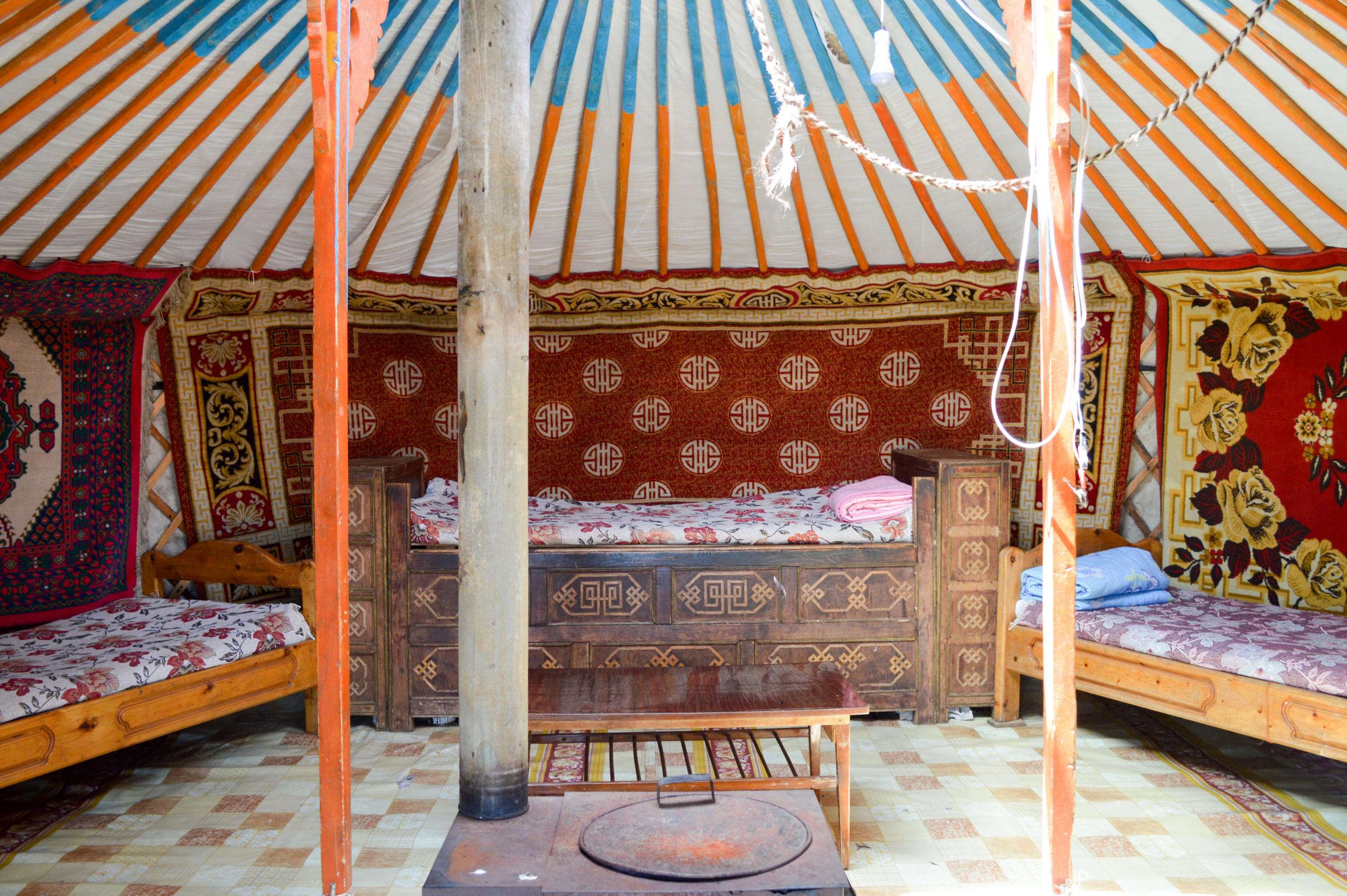
It is also a staging post for reaching Kharkhorin, the long destroyed capital of Genghis Khan.
I’m staying with Khadu, 40, his wife Oyon, 38, and three of their four children, 180 miles from the capital city of Ulaanbaatar. The family has three gers – circular structured tents insulated with wool and pitched around a wood burning stove. Two of them are kept for guests, usually brought by a small Mongolian agency, Nomad Planet, with whom the family have collaborated for a decade.
Six hard single beds line my guest ger in a hexagon around a woodburner, the flue poking through the centre of the tent. Unnecessary in the summer, the family explain it is kept burning constantly during winter, including throughout the night.
The modest camp, which also includes a 4x4, a motorbike and a couple of rickety animal pens, is set upon a small, sandy knoll in between folds of rocky hills, a small lake and the rolls of the Elsen Tasarkhai sand dunes. Only a handful of other gers are visible for miles.
With no running water, Khadu fetches supplies for cooking and washing daily from the province’s well. The toilet is an open air pit straddled with two planks and sheltered on three sides by a makeshift cubicle. By the time the sun reached its zenith, it is swarming with flies.
Food is predominantly animal produce: salty milk tea is all the family drink, and it is also used to warm up dried meat.
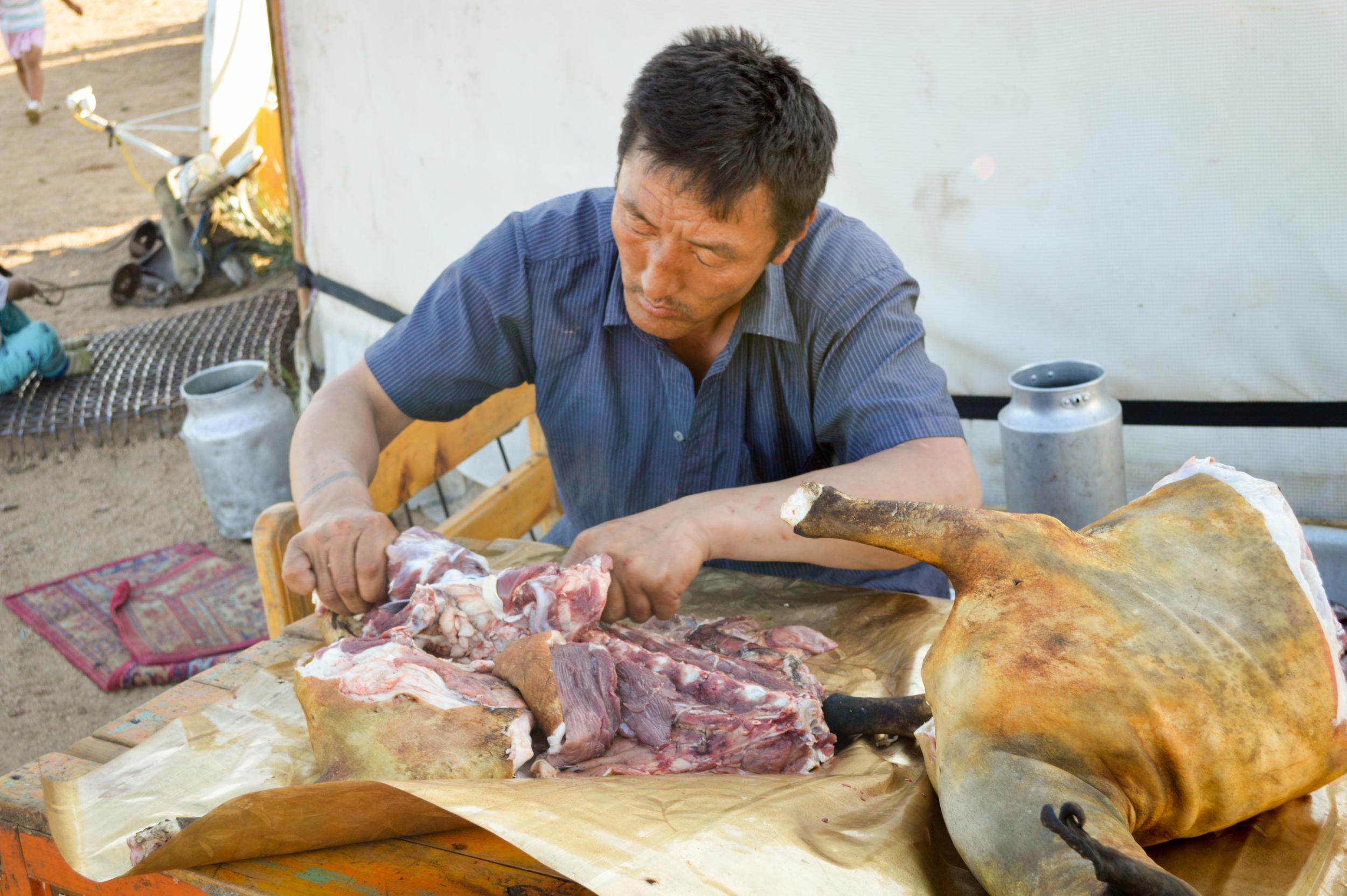
But what it is lacking in amenities is amply compensated by nature. Only the lowing of the cows breaks the dawn peace, and with the only electricity provided by a solar panel and a car battery in the main family ger, the pace of life falls into the circadian rhythm of the long summer days.
“I tried living in the city for a month and it felt like 10 years,” says Khadu, explaining that when the seasons are stable, his family might move four times in a year, seeking shelter in the valleys from the unforgiving winter winds and snow. “Here, it’s easy. If you need money, you sell an animal. If you need food, you kill an animal.”
It feels like an oversimplification but the family’s day to day life certainly seems low stress. There is a steady flow of activities involving the entire family, from milking the cows to keeping watch over the herds, making yoghurt, butter and curd, and maintaining the gers.
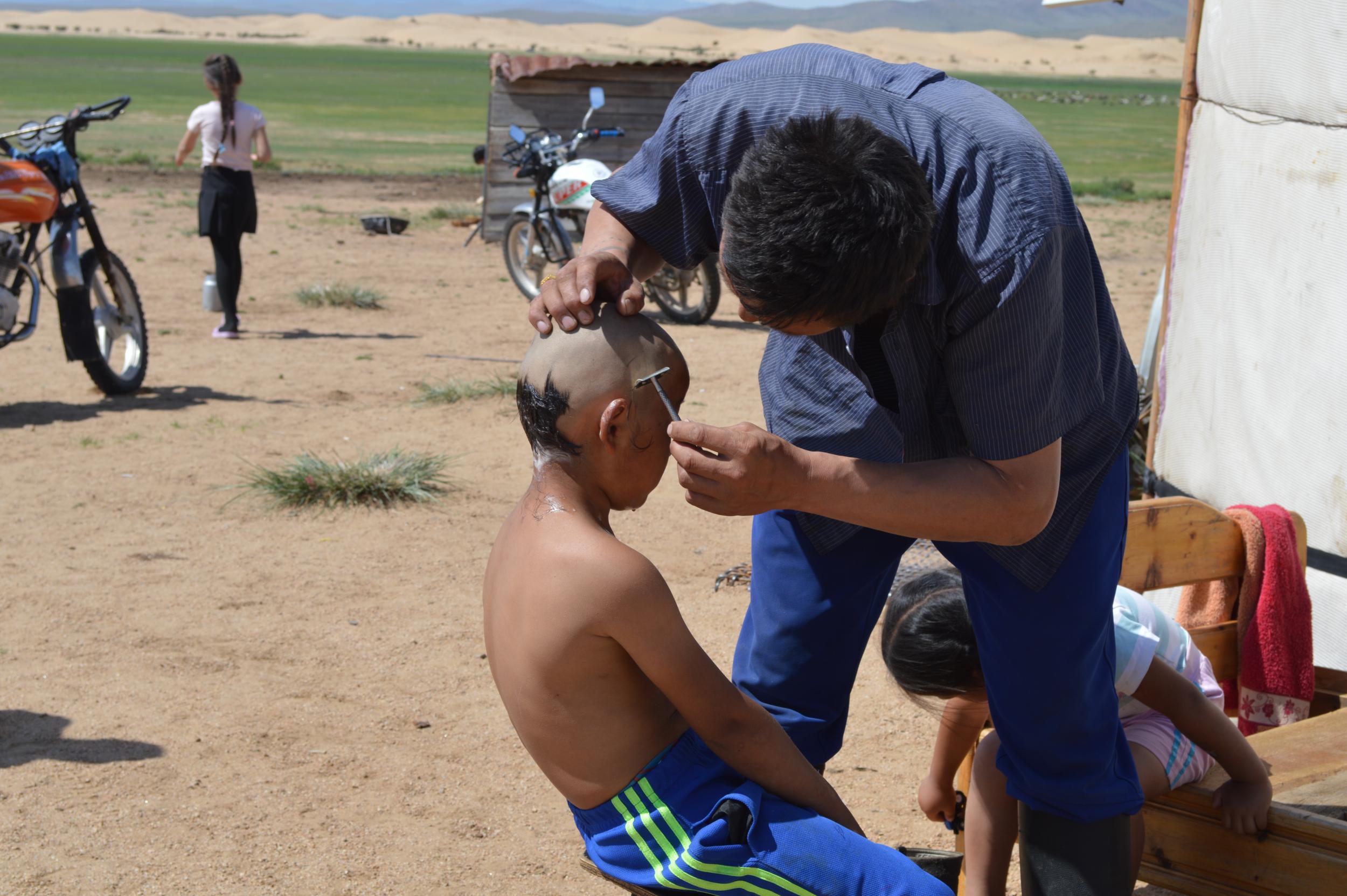
Guests are welcome to help; otherwise, we are left to relax, take in the scenery and go exploring on foot, horseback or in an all-terrain vehicle (ATV). From the serene grounds of the Lama Erdene monastery at the foot of Khogno Khan mountain to the sand dunes at sunset, the attractions are all free, deserted and set beautifully in nature.
I help Oyon and her 14-year-old daughter Nandin make traditional dumplings filled with mutton and chopped vegetables, which they expertly craft by hand to steam over the woodburner.
One morning, the Buddhist calendar indicates it is a good day for a haircut so Khadu shaves his seven-year-old son Luvsan’s head. Later, he sharpens his scissors to shear the sheep.
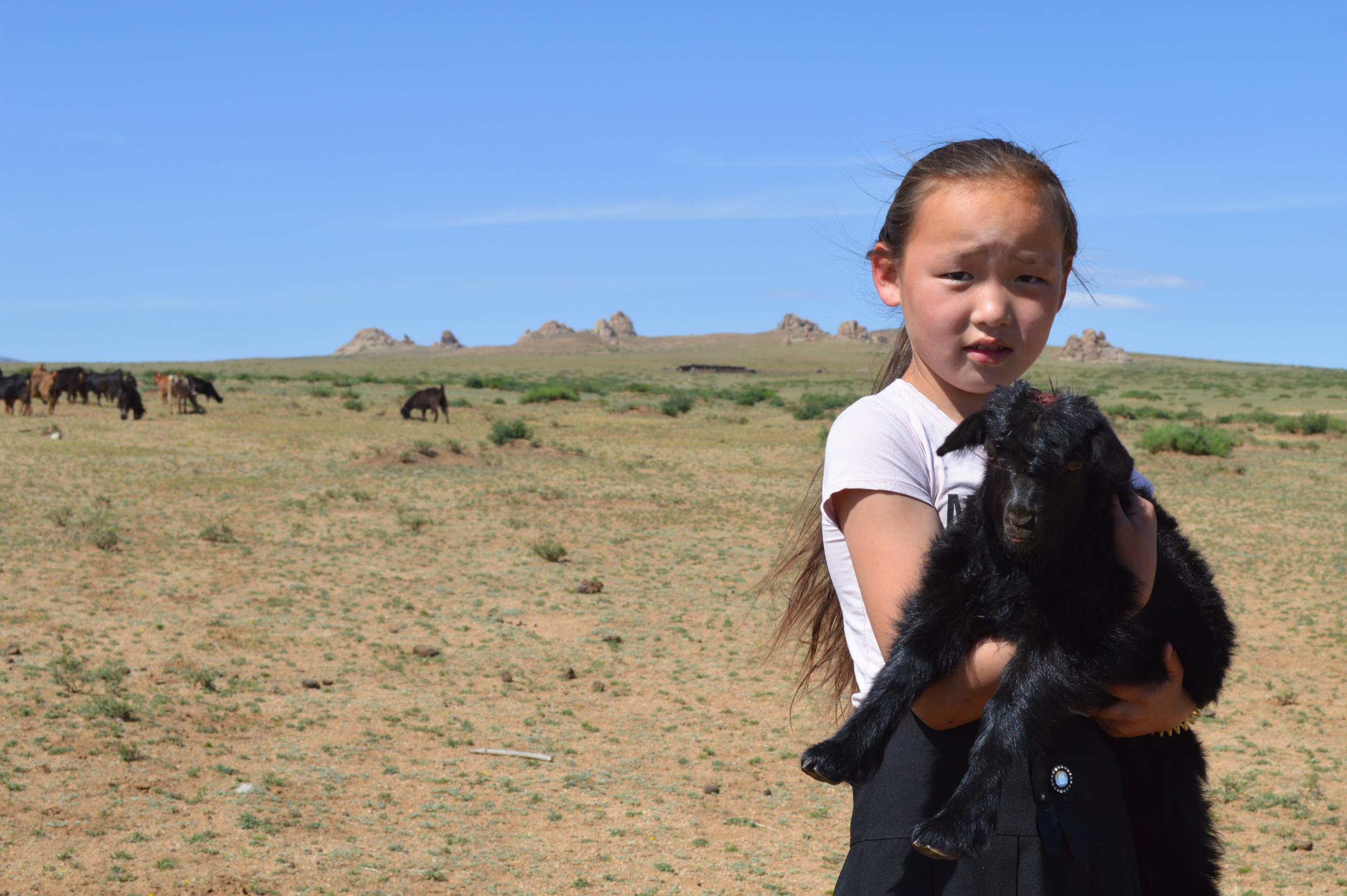
In the afternoon, I help the children herd the goats, bred for their cashmere. It takes some time to move them along from a patch of grass, mainly thanks to Luvsan’s pet kid Zuzu, an orphaned black goat that insists on being carried and is bottle-fed like a baby.
Such tenderness and care for the goats followed by the killing of a sheep for food highlights the completeness of their relationship with animals. And even the inherently violent act of slaughter is performed with respect: Khadu maintains that the traditional method of stunning the animal, slitting its stomach and pinching its main artery is the most humane way. The sheep is quickly senseless, and dead within two minutes.
Cooked in a pot with water, hot stones, potatoes, onions and carrots, it is enough to feed 15 to 20 people. Everyone eats hunks of flesh, fat and skin using their fingers and a sharp knife, leaving nothing behind except the offal, which will be used later by the family.
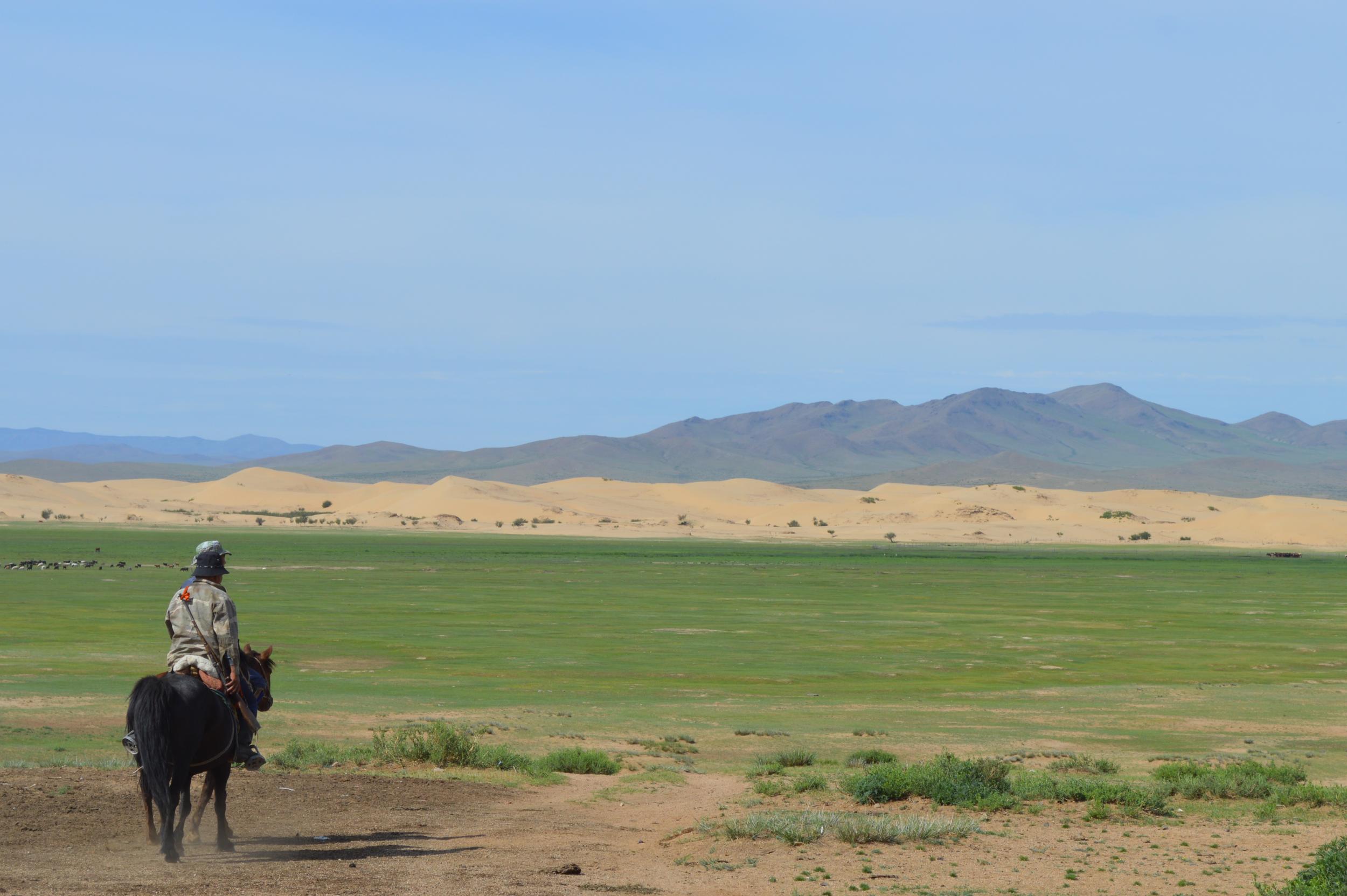
On the day I leave, Khadu was up early to say goodbye before setting off to hunt wolves in the nearby sand dunes. The family had heard them attacking the sheep overnight and had gathered their neighbours to hunt the animals before they could kill more. The men set off on horseback and motorbikes with old rifles slung across their backs, slipping into the folds of the distant sand dunes without looking back.
Travel essentials
A Mongolia tour of 10-14 days with Nomad Planet costs from £760 to £990pp.
Join our commenting forum
Join thought-provoking conversations, follow other Independent readers and see their replies
Comments